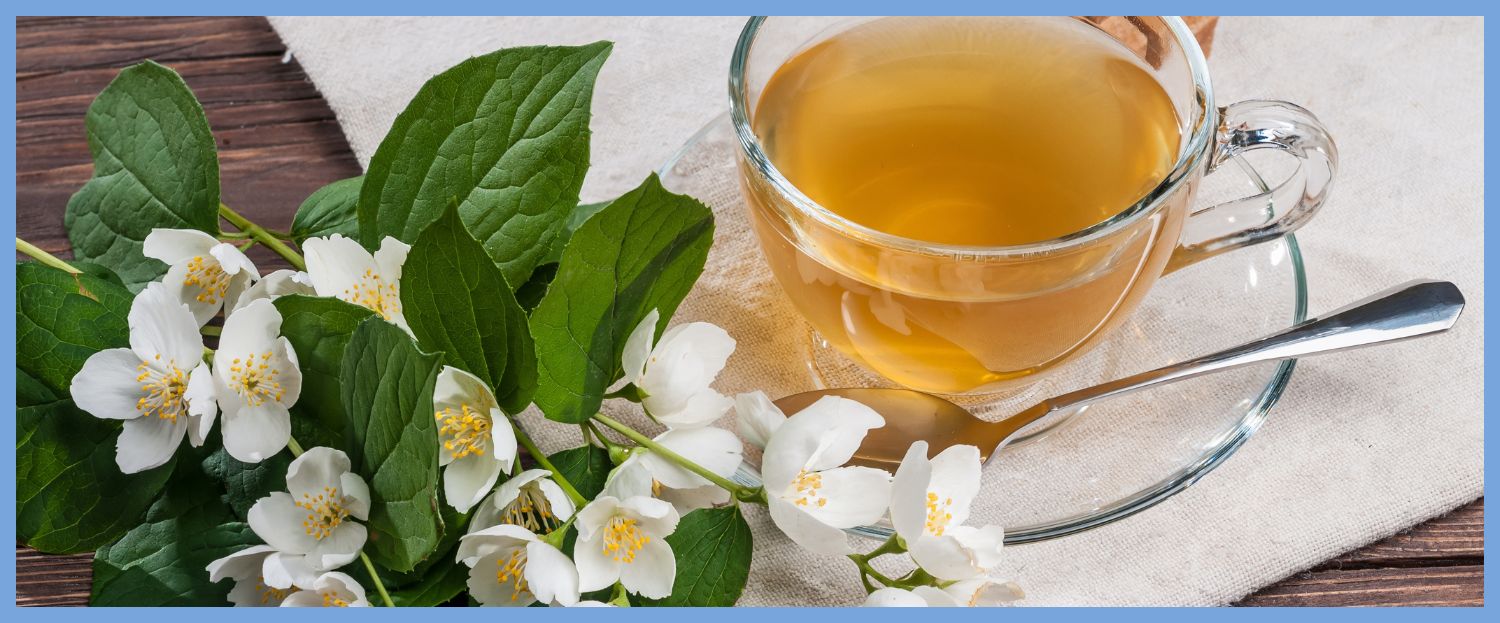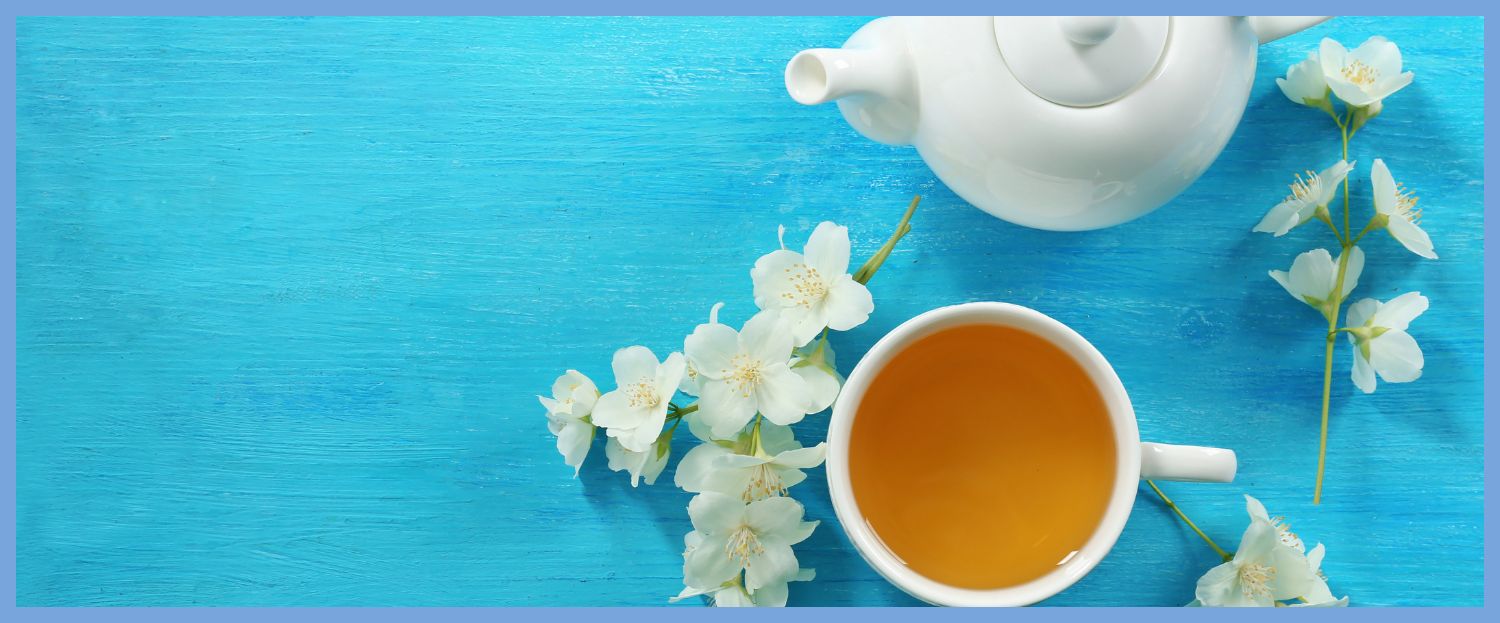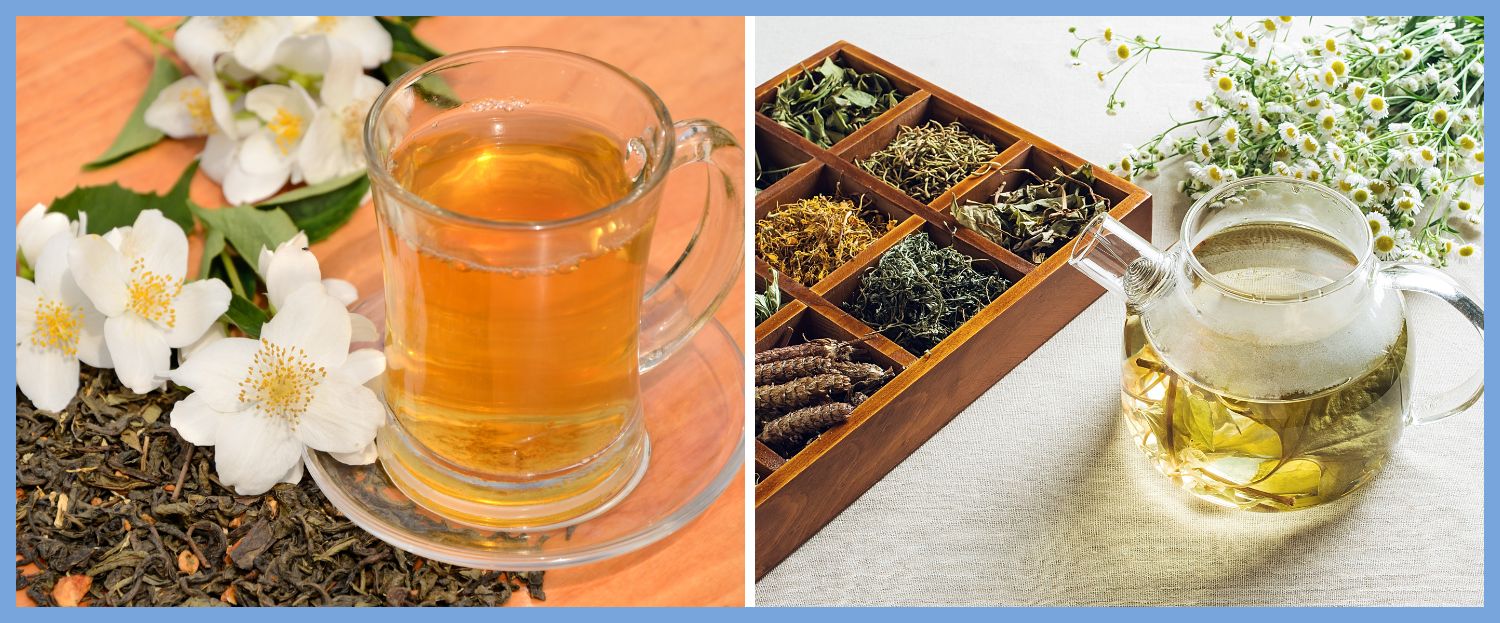Does Jasmine Tea Help You Sleep? Exploring Its Benefits
Jasmine tea is often touted for its calming effects, but does it really help you sleep better? The aroma of jasmine tea has been shown to have sedative effects, potentially aiding in relaxation and improving sleep quality.
The tea contains L-theanine, an amino acid that promotes relaxation and reduces anxiety, which may contribute to a better night’s rest. Moreover, the soothing qualities of jasmine scent can trigger a reduction in heart rate and promote a state of calmness.
Notably, the caffeine content in jasmine tea can vary, and for some people, it may still impact sleep negatively. Understanding how your body reacts to jasmine tea will help you determine if it is a suitable bedtime beverage for you.
Understanding Jasmine Tea
Jasmine tea is renowned for its floral aroma and calming effects. Its origins and components provide insight into why it’s a cherished choice for many tea enthusiasts.

Origins of Jasmine Tea
Jasmine tea originated in China during the Song Dynasty (960–1279 AD). This tea combined green tea leaves with jasmine blossoms to create its distinct flavour and fragrance.
Production primarily occurs in Fujian province, where the climate and soil conditions are ideal for jasmine flowers. Traditional methods involve layering jasmine blossoms with tea leaves, allowing the scent to infuse. This process may be repeated several times for a stronger aroma.
Key Components of Jasmine Tea
The primary components include green tea leaves and jasmine flowers. Green tea provides antioxidants like catechins and polyphenols, known for their health benefits.
Jasmine flowers contribute linalool and benzyl acetate, compounds responsible for the tea's soothing fragrance. These components not only enhance flavour but may also contribute to its calming effect.
Together, these elements create a balanced tea known for its potential health benefits and relaxing properties.
Effects of Jasmine Tea on Sleep
Jasmine tea is often discussed for its potential benefits to sleep, focusing primarily on its components like L-theanine, its impact on sleep quality, and the varying caffeine levels within.

Role of L-Theanine
L-Theanine is an amino acid commonly found in jasmine tea. It is known for its calming properties and ability to reduce stress levels. By stimulating the production of calming neurotransmitters like GABA, dopamine, and serotonin, L-theanine can promote relaxation.
These effects can potentially help in reducing sleep onset latency, making it easier for one to fall asleep. It also supports improved sleep efficiency, thereby facilitating deeper and more restorative sleep phases.
Impact on Sleep Quality
Jasmine tea can influence sleep quality through its natural sedative effects. The fragrance of jasmine has been associated with decreased heart rate and reduced stress levels. This aroma therapy aspect may create a conducive environment for sleep.
Additionally, regular consumption may lead to longer sleep durations and fewer nighttime awakenings. Both of these factors contribute to a more restful night, which can help individuals feel more refreshed upon waking.
Caffeine Content Considerations
The caffeine content in jasmine tea can vary, affecting its suitability for evening consumption. While jasmine tea generally contains less caffeine than coffee, it still possesses some stimulatory properties.
For those sensitive to caffeine, excessive consumption of jasmine tea in the evening might counteract its calming benefits. Opting for a decaffeinated version or consuming it earlier in the day may mitigate this issue. Being mindful of caffeine intake ensures that jasmine tea supports rather than hinders sleep.
Comparative Analysis With Other Beverages
Jasmine tea offers unique properties that can influence sleep, and comparing it to other popular beverages reveals specific benefits and differences. The following comparison highlights its sleep-inducing potential against herbal teas and chamomile tea.

Jasmine Tea vs Herbal Teas
Herbal teas, including peppermint and lemon balm, are caffeine-free and known for their calming effects. Jasmine tea, infused with green or white tea leaves, contains some caffeine.
The caffeine content in jasmine tea can vary but is generally lower than that in black tea.
Herbal teas, by contrast, do not interfere with sleep-related hormones like melatonin. Jasmine's aroma provides an additional layer of relaxation, enhancing mood and reducing stress, but may not be as potent in inducing sleep as purely herbal, caffeine-free alternatives.
Jasmine Tea vs Chamomile Tea
Chamomile tea is renowned for its sleep-promoting qualities due to its mild sedative effects from apigenin. Jasmine tea contains less caffeine and lacks specific compounds found in chamomile.
Chamomile tea directly affects neurotransmitters, promoting quicker and deeper sleep.
Jasmine tea relies on aromatherapy principles, providing a calming experience and potentially aiding in stress reduction. Chamomile's effect on GABA receptors makes it a more robust choice for those seeking to improve sleep quality through tea consumption. Jasmine tea, while beneficial, does not match chamomile in direct sleep induction but offers aromatic relaxation.
Jasmine Tea vs Hot Chocolate
Hot chocolate, a warm and comforting drink, contains theobromine and sugar, which can act as mild stimulants and may disrupt sleep for some individuals. The milk in hot chocolate provides tryptophan, promoting relaxation but in minimal amounts.
In contrast, jasmine tea, with its lower caffeine content and soothing aroma, offers a calming effect without the sugar spike. The jasmine scent enhances relaxation and reduces stress, making it a more balanced choice for evening consumption. While hot chocolate provides a cozy experience, jasmine tea's aromatic benefits and lower stimulant levels make it a preferable option for those seeking to improve sleep quality.




